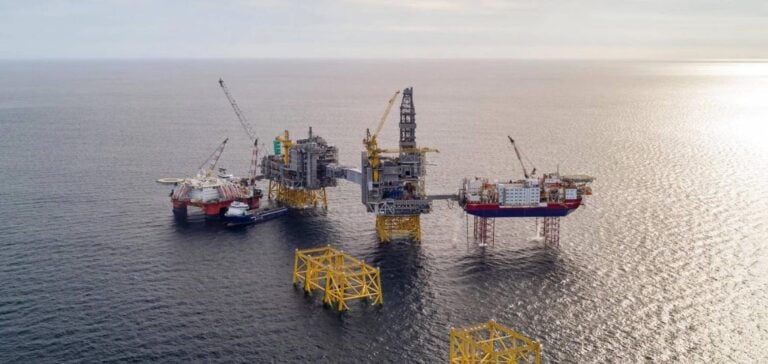The Norwegian Petroleum Directorate (NPD) emphasizes the need for increased exploration and exploitation of hydrocarbon resources in the Barents Sea.
This region holds around two-thirds of Norway’s undiscovered reserves.
For the NDP, it is imperative to develop appropriate infrastructure, including a gas pipeline, to exploit these resources effectively.
Without such investment, Norway could see its leading role in the energy sector diminish, as the country anticipates the decline of major fields such as Johan Sverdrup.
The NDP also points out that, without immediate action, Norway risks leaving a large part of its resources untapped, limiting its future production potential.
This could have a significant impact on the country’s economy, which is heavily dependent on revenues generated by the oil and gas sector.
Production scenarios and challenges for the industry
The NDP report presents different production scenarios for the coming decades.
The central scenario forecasts a two-thirds reduction in hydrocarbon production by 2050, while other scenarios envisage a more gradual or more rapid decline, depending on the investments made.
This projection highlights the need for rapid strategic decisions to avoid a drastic drop in production.
The NDP also warns against the risks of extracting gas from oil reservoirs too quickly.
Stopping gas injections prematurely, to maximize oil recovery, could jeopardize total production from these fields in the long term.
Managing these resources requires a balanced approach to avoid future yield losses.
Outlook for the oil and gas sector
To secure its energy future, Norway needs to adopt an ambitious investment strategy.
Development of the Barents Sea is seen as central to extending the life of its oil and gas sector.
A pipeline linking this region to existing infrastructure would not only sustain gas production, but also stabilize Europe’s energy supply.
The decisions taken today will have a direct impact on Norway’s competitiveness in the global hydrocarbon market.
The development of Barents Sea resources, though complex, represents a unique opportunity for the country to maintain its energy influence and secure the future of its industry.





















